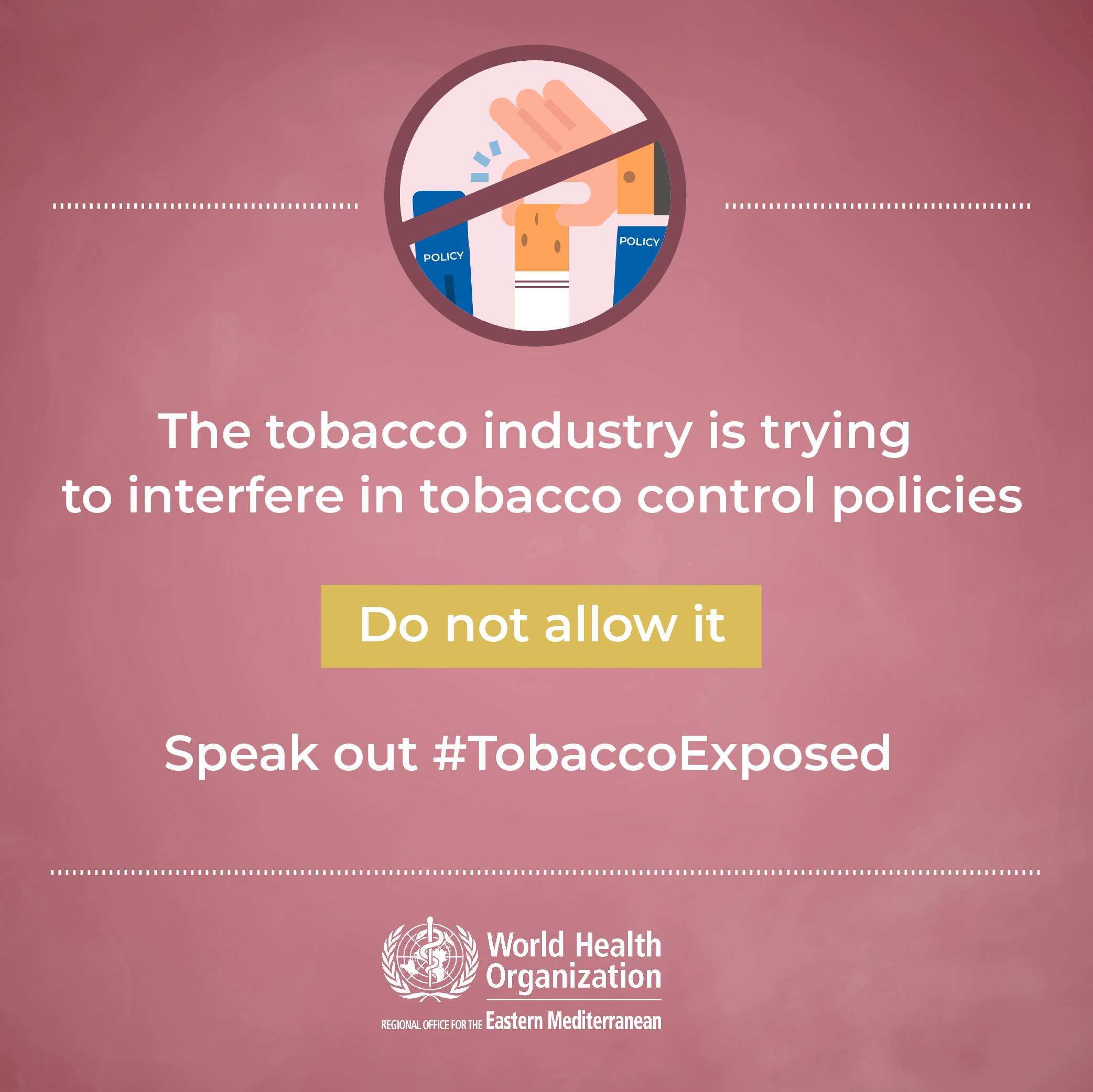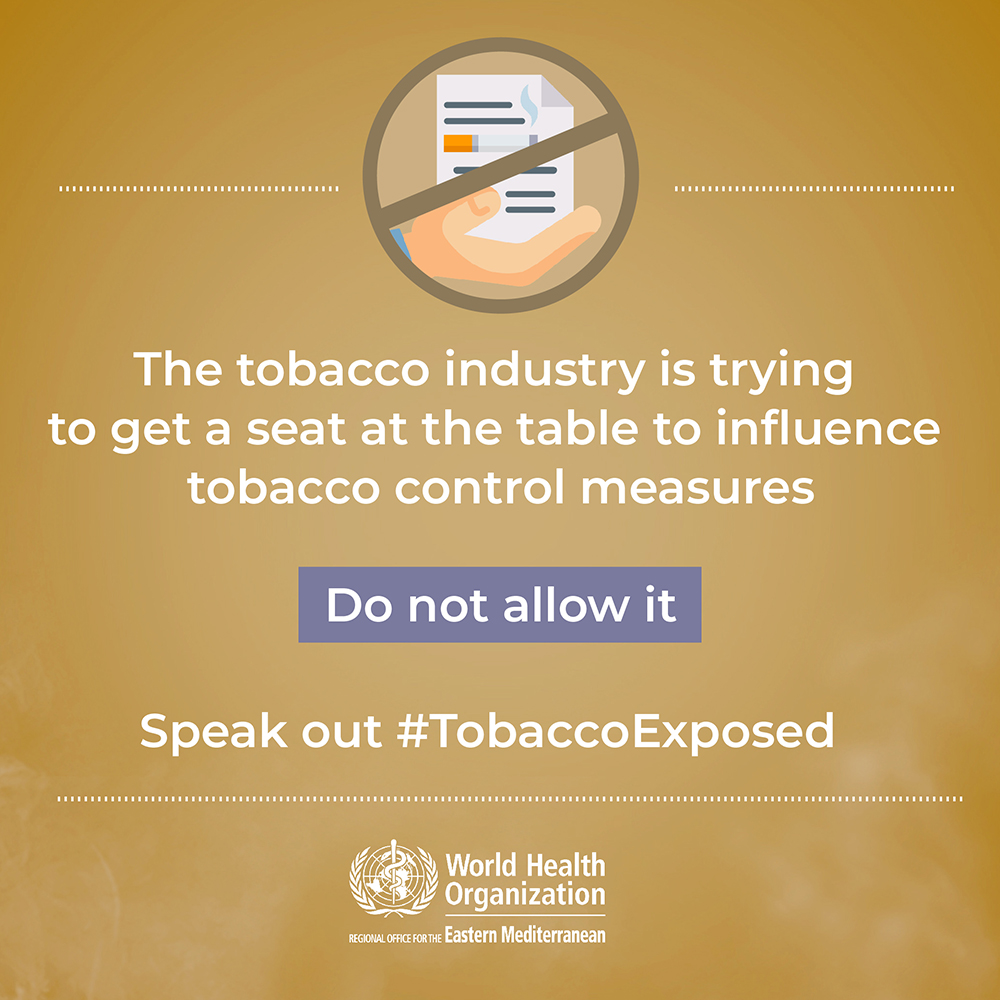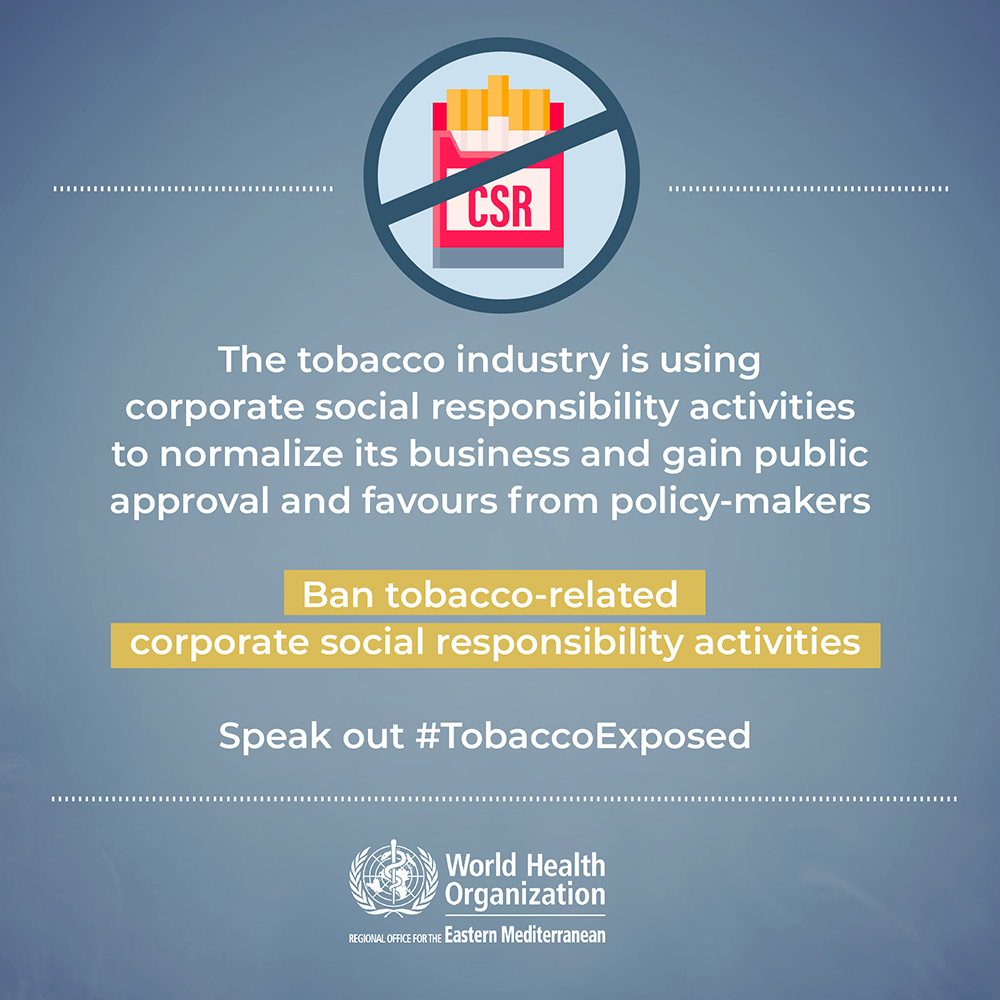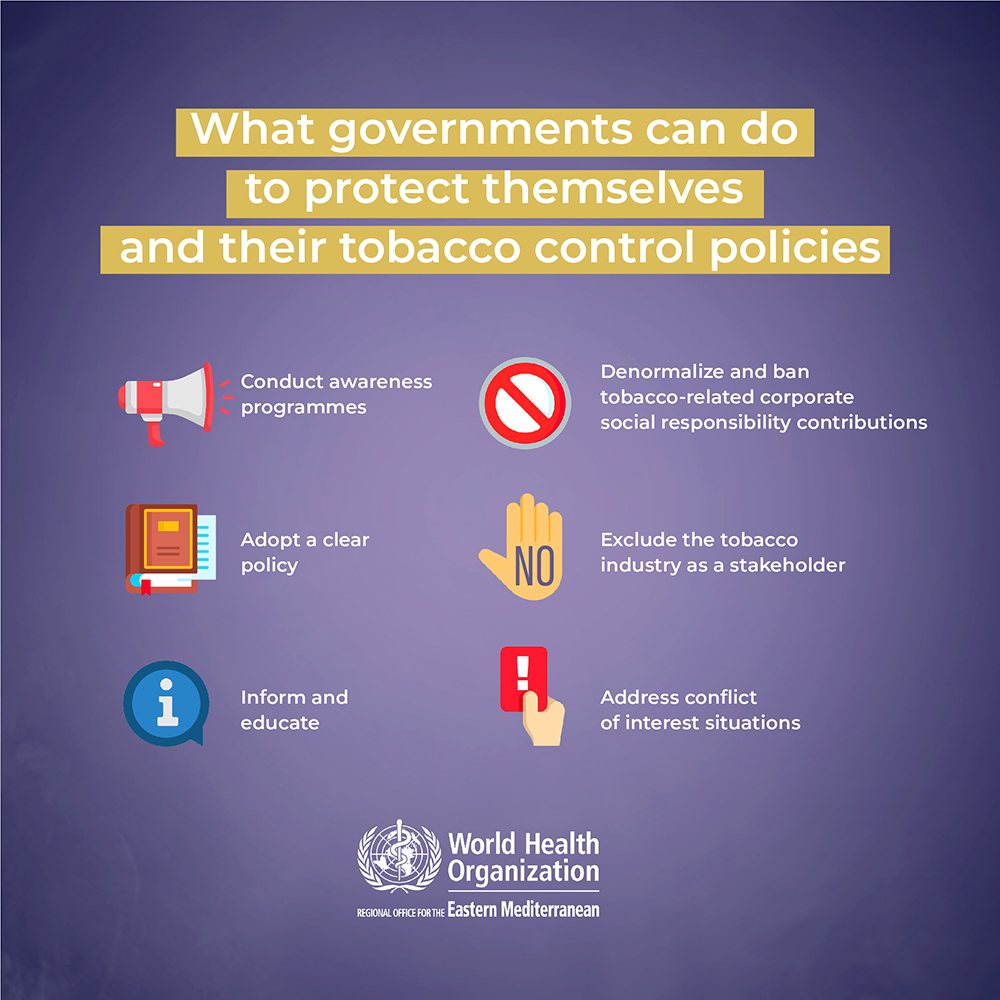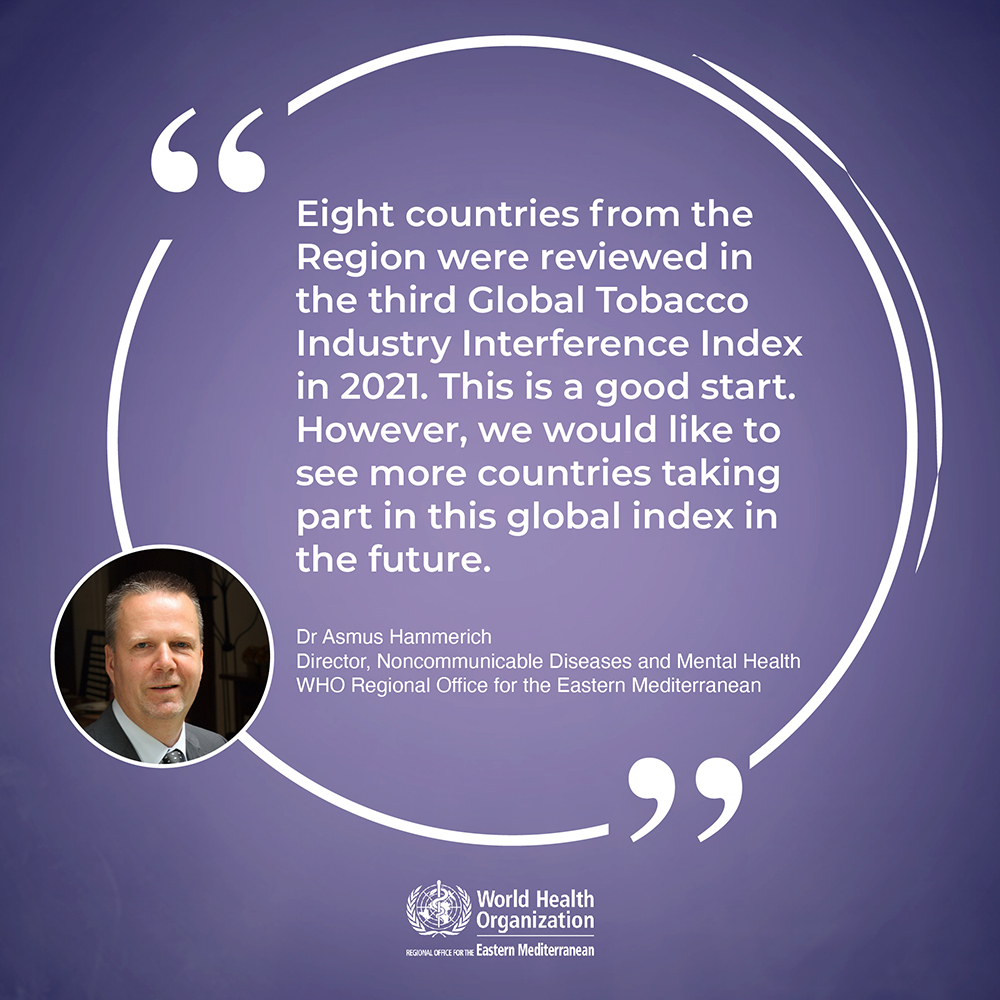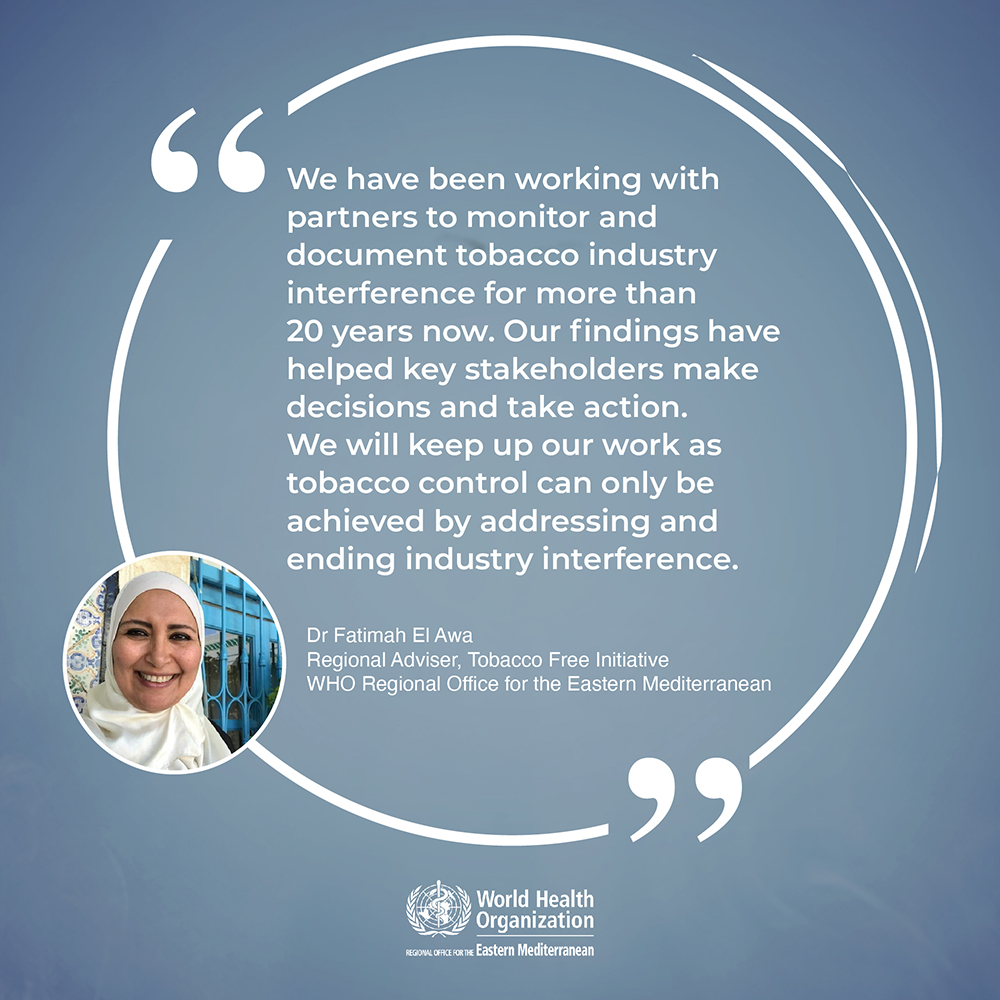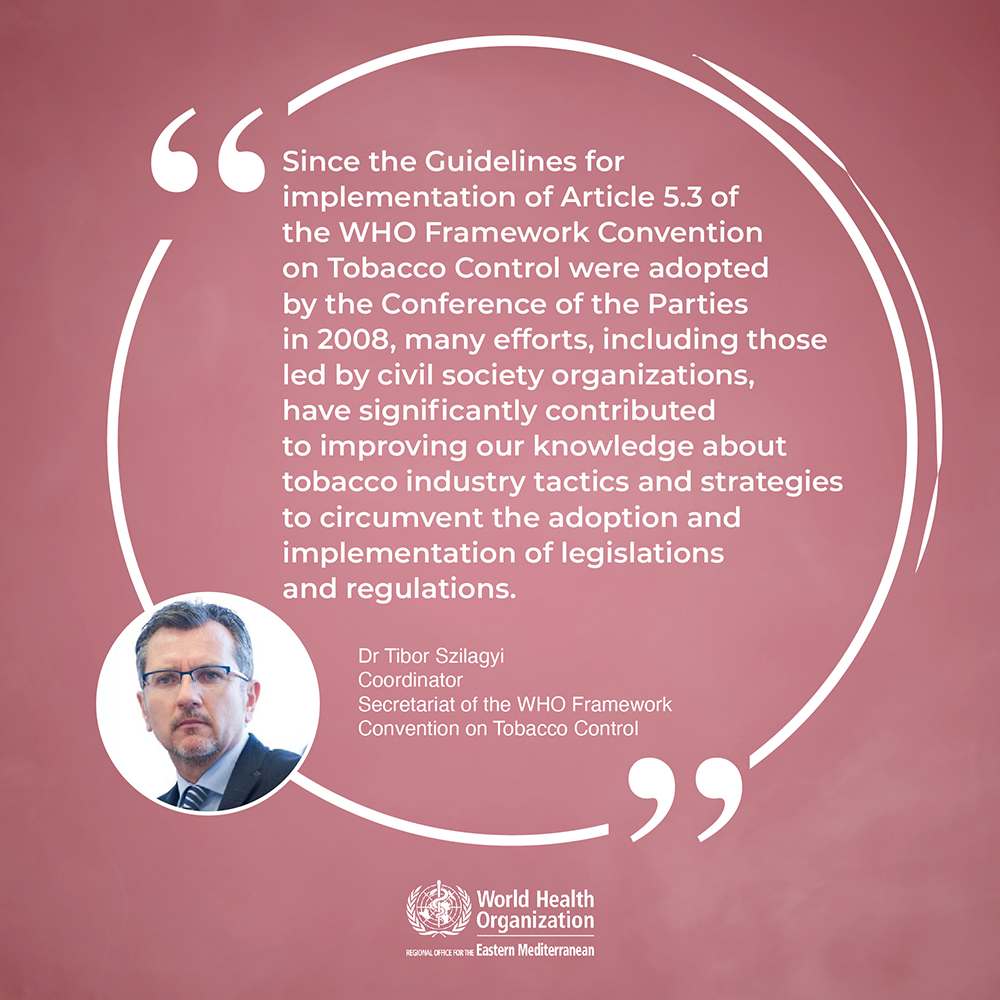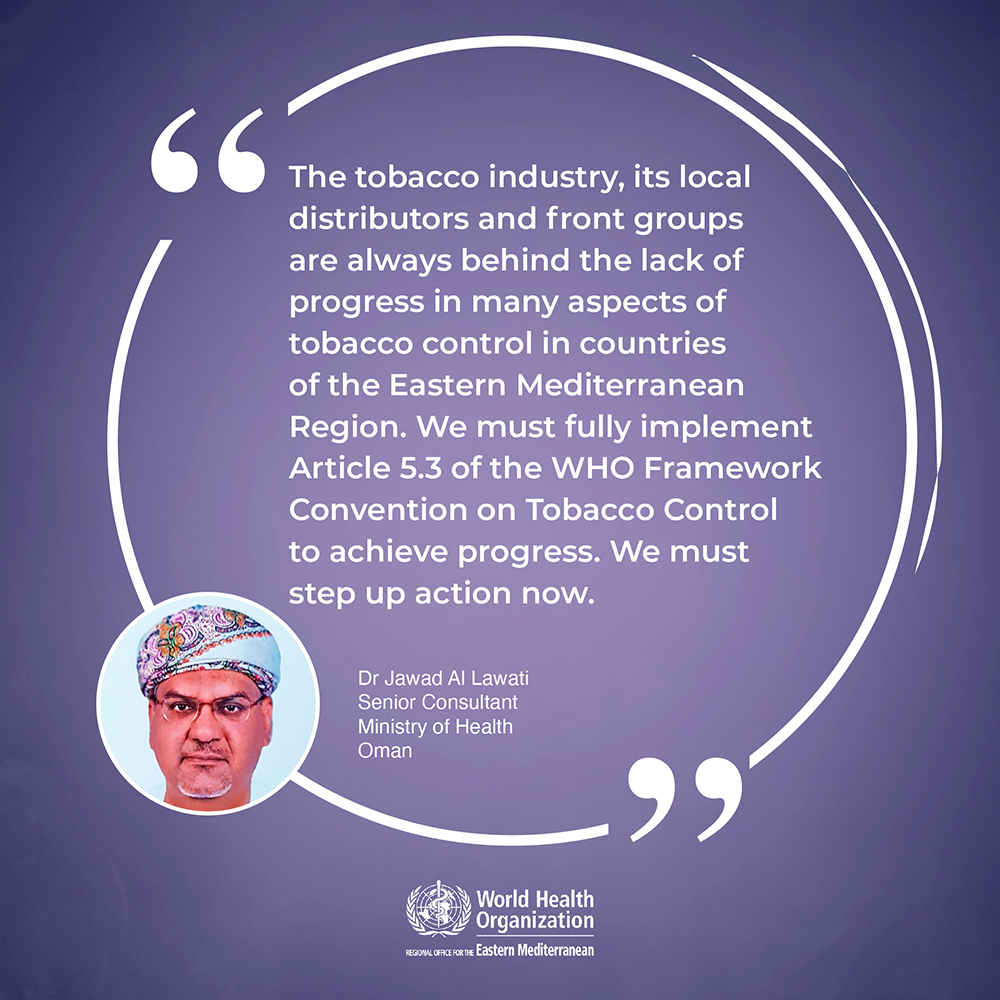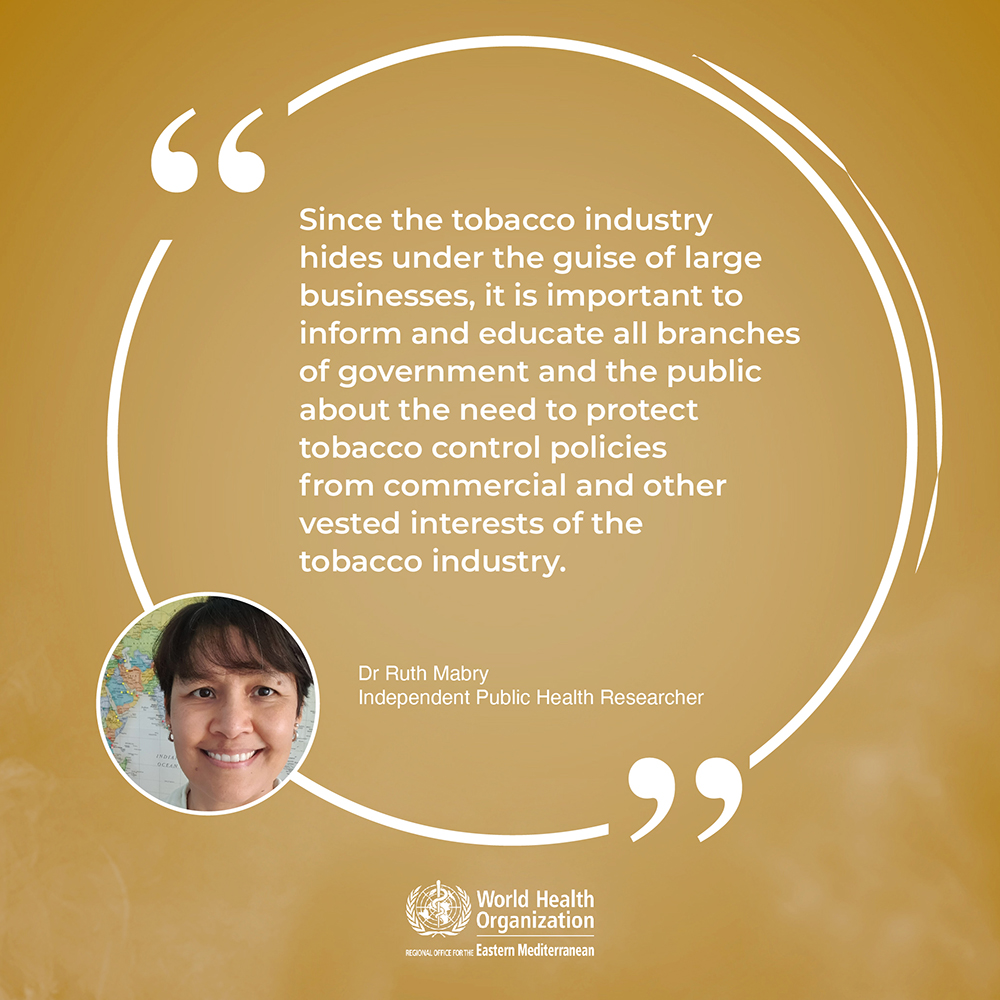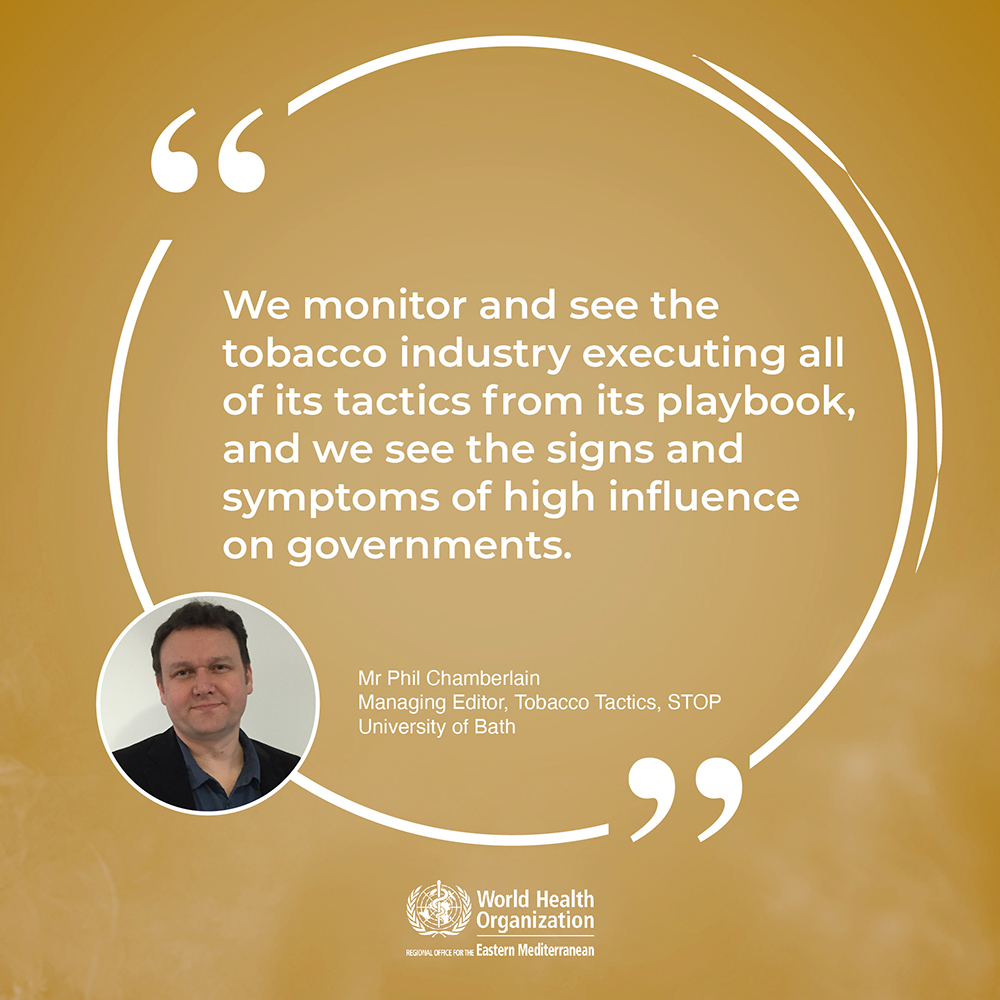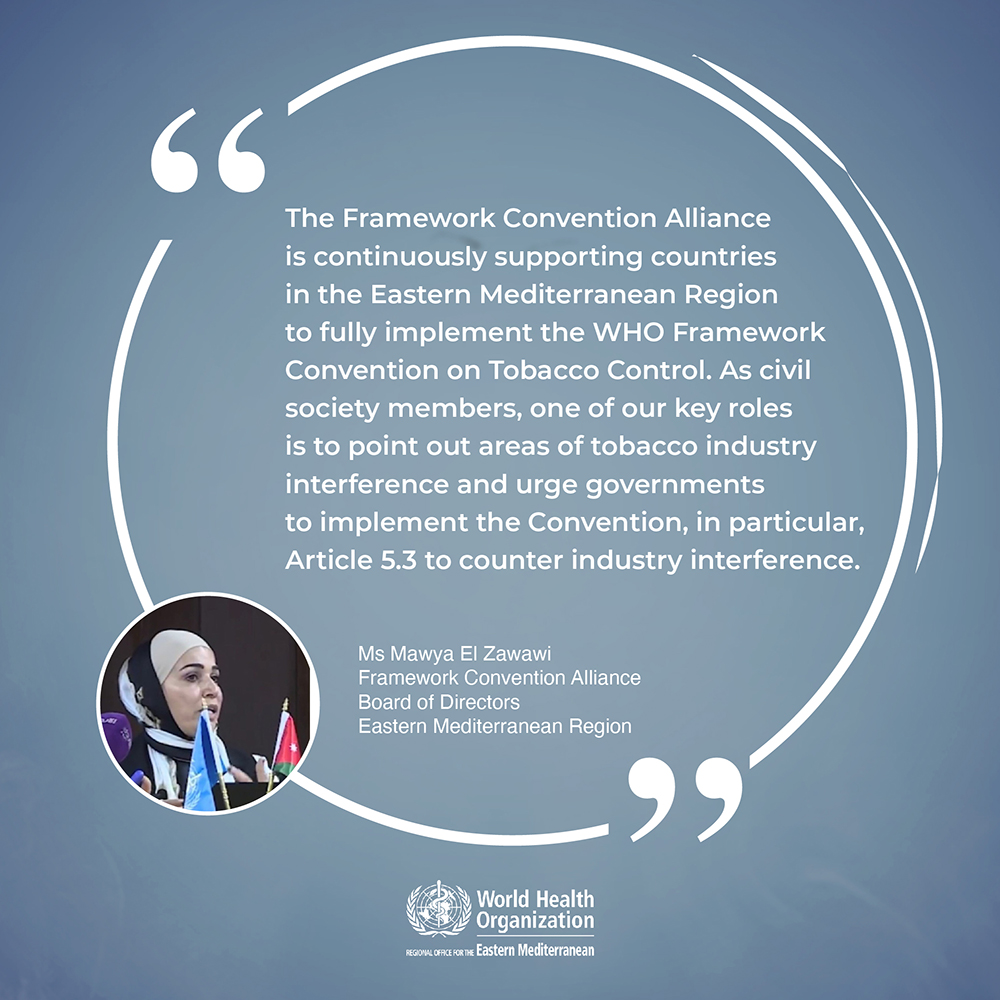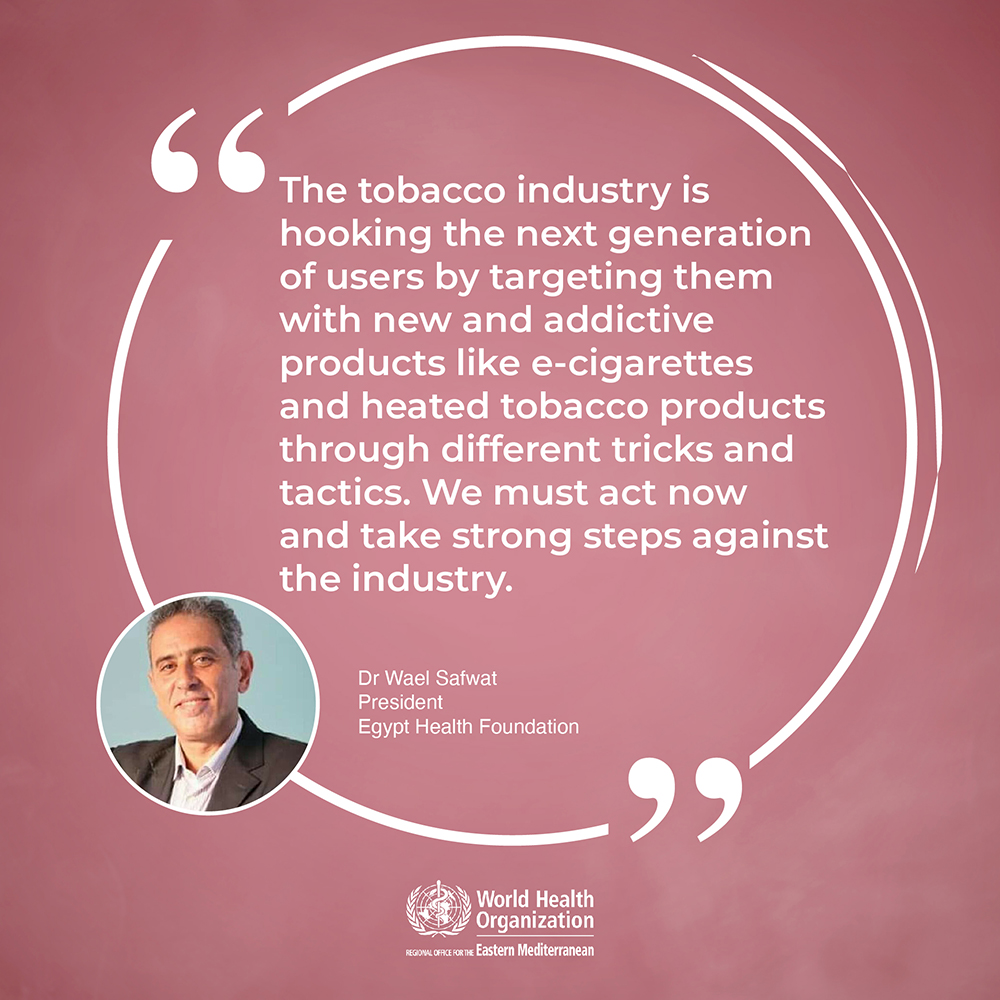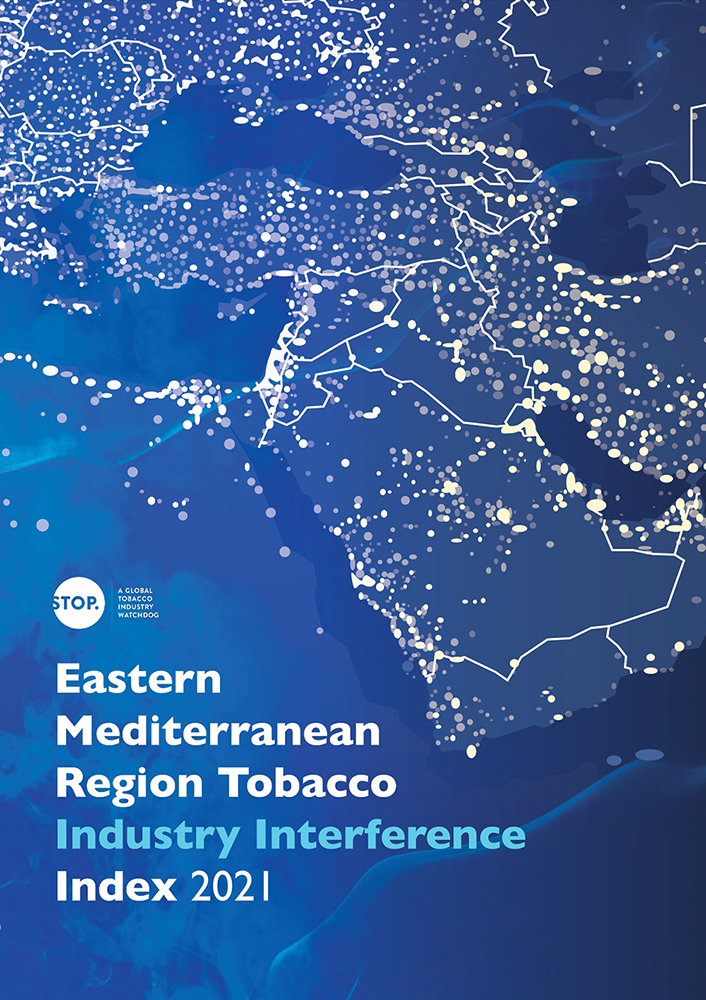
Increased action needed to better implement Article 5.3 of the WHO FCTC and its guidelines to stop tobacco industry interference and reduce tobacco use
21 February 2022 | The tobacco industry exploited the COVID-19 pandemic to expand its market for cigarettes as well as new tobacco and nicotine products. A new report on tobacco industry interference shows that the tobacco industry is interfering in policy development, conducting tobacco-related corporate social responsibility activities to whitewash its image, receiving incentives that prosper it, unnecessarily interacting with governments, taking advantage of loopholes to avoid being transparent and accountable, and making use of conflict of interest situations during the ongoing pandemic. The Eastern Mediterranean Region, like other regions, was not spared and experienced tobacco industry interference which undermined and compromised public health policy. WHO, the Global Center for Good Governance in Tobacco Control, Secretariat of the WHO Framework Convention on Tobacco Control (FCTC) and other partners, including focal points from ministries of health and WHO country offices, tobacco control advocates, academia and media are calling for increased action to better implement Article 5.3 of the WHO FCTC and its guidelines to stop tobacco industry interference and reduce tobacco use.
Eastern Mediterranean Region Tobacco Industry Interference Index 2021
The first Eastern Mediterranean Region Tobacco Industry Interference Index 2021 tracks progress of countries in their efforts in implementing Article 5.3 of the WHO FCTC and its guidelines. It was launched February 2022 in Egypt. This index shows that transnational tobacco companies are expanding in the Region through joint ventures and acquisitions. It also reveals that tobacco industry websites are vocal about how they see the Region as a lucrative market for their products and an opportunity for expansion. Moreover, this index shows that the local tobacco industry in the Region has joined the expansion bandwagon. This report also focuses on tobacco industry interference in policy development, tobacco-related corporate social responsibility activities to whitewash industry image, incentives that were received by and prospered the industry, unnecessary interaction between the industry and government, deterioration of transparency and accountability, and conflict of interest situations faced by public officials.
The WHO Regional Office for the Eastern Mediterranean has been monitoring and documenting instances of tobacco industry interference for more than 20 years now. The countries addressed in this report represent the continuation of these efforts that are much needed for policy-makers to make informed decisions on the implementation of Article 5.3 of the WHO FCTC and its guidelines. Eight countries from the Region (Egypt, Iran, Iraq, Jordan, Lebanon, Oman, Pakistan and Sudan) who participated in this index, recorded various forms of interference and governments’ responses to these instances of meddling. All eight countries participating in the survey are Parties to the WHO FCTC, meaning they have made commitments to implement tobacco control measures, reduce tobacco use and protect their health policies from interference from commercial and other vested interests.
This index has shown that countries continue to face serious challenges in implementation of Article 5.3 of the WHO FCTC and its guidelines. While some countries show a slight improvement in their scores compared to the data recorded in the Global Tobacco Industry Interference Index 2020, other countries have not made sufficient progress in their scores. This index is based on publicly available information and the details provided are a reflection of what has been found. It confirms the need for increased action to better implement Article 5.3 of the WHO FCTC and its guidelines to stop tobacco industry interference and reduce tobacco use.
Report recommendations
Governments can adopt the following measures to better protect themselves and their tobacco control policies:
Conduct awareness programmes specifically on Article 5.3 of the WHO FCTC and its guidelines for government departments more regularly.
Adopt a clear policy for the government in dealing with the tobacco industry that ensures transparency and prevents conflicts of interest. This can be a form of a code of conduct for all public officials to guide their interactions with the tobacco industry which should be limited to only when strictly necessary. Expand current code of conduct for members of the Tobacco Control Committee to cover whole of government to plug any loopholes.
Inform and educate all branches of government about the need to protect public health policies for tobacco control from commercial and other vested interests of the tobacco industry.
Denormalize and ban tobacco-related corporate social responsibility contributions as recommended in Article 5.3 of the WHO FCTC and its guidelines, and the Guidelines for Article 13 of the WHO FCTC. The tobacco industry uses corporate social responsibility activities to normalize its business and gain public approval and favors from policy-makers.
Exclude the tobacco industry as a stakeholder at any level or stage of health policy development. Terminate existing collaboration with the tobacco industry to conduct training programmes or law enforcement activities.
Address conflict of interest situations, apply policy coherence and fully commit to implementing the WHO FCTC to protect public health. Issue a policy on avoiding any preferential treatment to state-owned tobacco industry.
Adopt a procedure for disclosing records of all interactions with the tobacco industry and its representatives.
Related links
Eastern Mediterranean Region Tobacco Industry Interference Index 2021
Global Tobacco Industry Interference Index 2021
WHO Framework Convention on Tobacco Control





